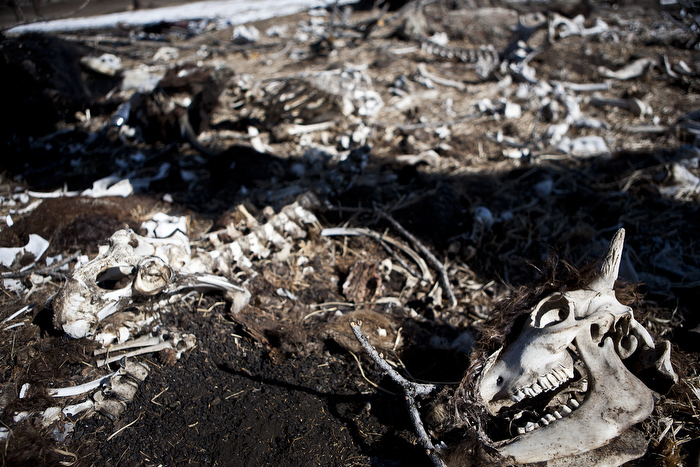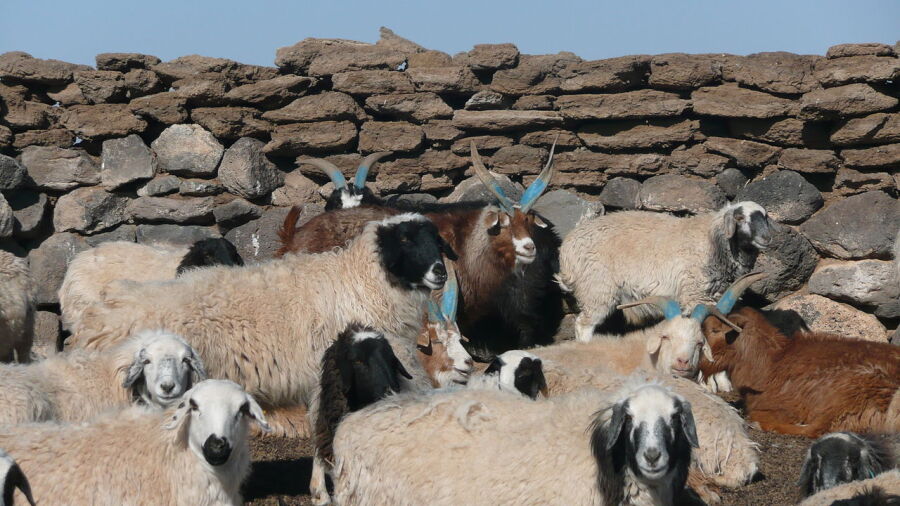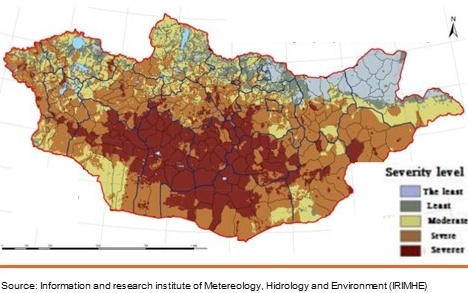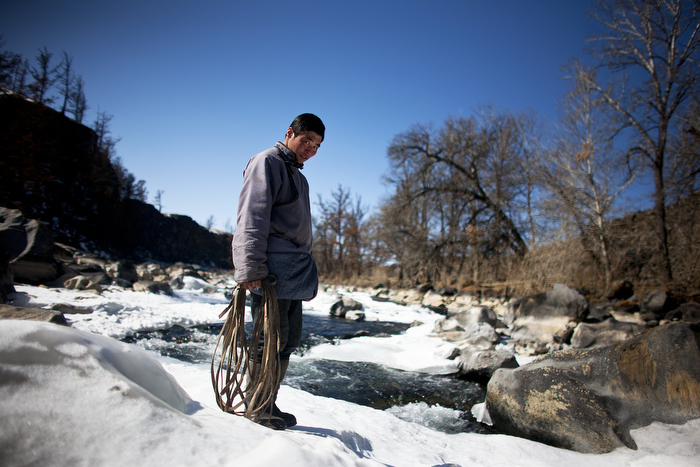Abuse and hate speech against LGBTQ people rises across Europe and Central Asia

There has been a “stark rise” in abuse and hate speech against LGBTI people in the Europe and Central Asia region, including from politicians, says a new report from the International Lesbian, Gay, Bisexual, Trans and Intersex Association in Europe (ILGA-Europe).
The Annual Review of the Human Rights Situation of LGBTI People in Europe and Central Asia 2021 shows the coronavirus (COVID-19) pandemic worsened the situation in the last year in multiple ways, from the use of emergency powers by governments – notably in Hungary – to hack away at trans rights, to the exclusion of LGBTI people from coronavirus support packages.
“In reports from country after country, we see a stark rise in abuse and hate speech against LGBTI people,” said Evelyne Paradis, executive director of ILGA-Europe. “There has been a resurgence of authorities and officials using LGBT people as scapegoats while authoritarian regimes are empowered to isolate and legislate without due process. Overall, there has been a crackdown on democracy and civil society, and not just in Poland and Hungary, which made all the headlines in 2020.
“The ILGA-Europe Annual Review 2021 shows a significant growth of opposition towards trans rights across Europe, which is beginning to have a wide and negative impact on legal gender recognition,” said Katrin Hugendubel, advocacy director at ILGA-Europe.
“There is legal regression and stagnation in 19 countries, many of which have seen opposition forces become louder, saying that advancing the protection against discrimination and self-determination for trans people would harm women’s rights or ‘the protection of minors’.”
Among the 19 countries that have seen regression in this area are Croatia, Hungary, Lithuania, Russia, Slovakia and Slovenia, along with several Western European countries.
Abuse in Belarus
“Attacks on freedom of assembly continue to be a growing trend,” says the report. It details the “brutal crackdown in Belarus for months, including arrests, detention, violence, and torture of LGBTI people”. Mass protests erupted in the East European country after the rigged August 2020 presidential election.
“LGBTQI people and activists have participated in and supported the protests from the first day. Some have brought rainbow flags to the protests. LGBTQI activists warned that even if [Belarus’ self-declared president Alexander] Lukashenko resigned, their fight would be far from over,” said the report.
Among those detained in the protests was LGBT+ activist Victoria Biran, who was arrested and put in administrative detention for 15 days, when on her way to the Minsk Women’s March.
“Being a peaceful protester these days in Belarus means to be a target of violence, to be terrorised, detained, attacked, beaten up, injured and murdered on the streets, or tortured in jail,” gay activist Andrei Zavalei told Politico.
In addition to developments in Belarus, “events were attacked or disturbed by extremists in Bulgaria … in Poland anti-LGBT and anti-abortion rallies were rampant, while activists were arrested. In Russia activists were detained; in Turkey there are ongoing court cases against peaceful Pride marchers and other cases against human rights defenders, and in Ukraine the Odessa Pride event was attacked.”
In Azerbaijan “hate crimes against the LGBT community continued to be a serious issue [in 2020],” according to the report.
Among several violent incidents, two gay men were attacked in Baku in May but the police failed to investigate; Aysu Mammadli, a trans woman and sex worker, was stabbed to death in Baku by an alleged client; 18-year-old Sevgia-Subkhani Ismayilova was subjected to family violence after coming out to her mother; and a young gay couple received multiple death threats after they shared a post of themselves on Valentine’s Day which went viral.
Abuse of emergency powers
Hungary’s Prime Minister Viktor Orban used the emergency powers approved by the parliament in March to issue a decree that made it impossible for transgender people to legally change their gender.
At the end of the year, when Parliament again voted to give the government emergency powers, several constitutional amendments were put forward, including one that would ban adoption by same-sex couples. The proposed amendment would specify that "the mother is a woman, the father is a man" and permit only married couples to adopt children.
On December 14, MPs amended the Fundamental Law “to further entrench the anti-trans framework by establishing children’s “right” to identify with their birth sex, to be ‘protected’ from interventions to change it, and to be educated according to Christian values,” according to the report.
Also in December, Parliament voted to abolish the Equal Treatment Authority (ETA), replacing it with the Commissioner for Fundamental Rights, a post held by government loyalist Akos Kozma.
Orban has sought to build an alliance among the new EU members against the liberal values of the older EU members in Western Europe. The Hungarian strongman called on neighbouring governments to stand up for Christian values, warning against Western efforts to “experiment with a godless cosmos, rainbow families, migration and open societies”.
A separate dispute broke out over ‘Wonderland is for Everyone’, a children’s book published by Labrisz Lesbian Association that became an online bestseller. Our Homeland Movement MP Dora Duro publicly shredded the book, and Orban said homosexuals should “leave our kids alone”.
“More destructive” than Communism
As Poland’s June 2020 presidential election approached, incumbent President Andrzej Duda said that the Polish LGBT rights movement peddles an “ideology” that is “more destructive” than Communism.
“There are attempts to convince us that [LGBT] are people but this is simply an ideology,” Duda said.
“My parents’ generation didn’t fight the communist ideology for 40 years to … now allow another, even more destructive, ideology to come,” the president added.
Duda’s message was calculated to pander to the core of his electorate, conservative Catholic Poles, as he presented himself as the defender of family and traditional values.
“The hate campaign against the LGBTI community in Poland, which started in October 2018, resulted in LGBTI people becoming a dominant issue during [2020]’s presidential elections, in which President Duda degraded and scapegoated the LGBTI community on his way to election victory,” said the report.
He won a narrow victory and in protest against his anti-LGBT rhetoric, the parliamentary representation of the Left showed up at the swearing-in in
The gender issue
Several contributors to the review expressed fears their countries could follow in the footsteps of Hungary and Poland.
Elsewhere among the newer EU member states, the Romanian parliament approved a law banning the teaching of gender studies in schools and universities, and forbade teachers and professors even to address the subject of being trans. Proposed by the centre-right Popular Movement Party and publicly supported by the orthodox church, the law sparked widespread criticism. In December, the Constitutional Court ruled that the ban was unconstitutional.
The issue of gender also continues to loom large in Bulgaria, which has seen growing anti-gender rhetoric focused on the Council of Europe Convention on preventing and combating violence against women and domestic violence, also known as the Istanbul Convention.
This was "to a large extent due to the efforts of the nationalist and populist Bulgarian National Movement (IMRO) party, which is the coalition partner of the ruling conservative GERB party”. The report quoted Defence Minister Krasimir Karakachanov from the far right IMRO party as saying about anti-government protesters in September: “We cannot let a few Sorosoid NGOs and small parties, that are not even in the parliament, get in power and destroy the country. In the name of what? To introduce gay marriage and to create a gender republic.”
In Croatia an effigy of a gay couple and a child was burnt at a festival in Imotski shortly after a ruling by the Supreme Court on the right of same-sex couples to foster children.
Hate speech from politicians
“The review shows a substantial rise in hate speech across the regions, both from official sources, in the media and online. The trend of politicians verbally attacking LGBTI people has grown considerably and spread widely, while many religious leaders have directly blamed LGBTI people for COVID-19,” said Paradis.
According to the report, “The trend of politicians verbally attacking LGBTI people has grown sizeably and spread in countries including Albania, Azerbaijan, Bosnia and Herzegovina, Bulgaria, Czechia, Estonia, Finland, Hungary, Italy, Kosovo, Latvia, Moldova, North Macedonia, Poland, Russia, Slovakia and Turkey.”
Among the many examples of hate speech by politicians, in October 2020, Estonia’s then interior minister Mart Helme made disrespectful comments about same-sex couples in an interview with Deutsche Welle. Helme, the outspoken leader of the far right Conservative People’s Party of Estonia (EKRE), opined that Estonian gay people "could run to Sweden" as they are looked upon more favourably there.
On EKRE’s urging, the government led by Juri Ratas planned to hold a referendum in April 2021 to ask Estonian citizens: “Should marriage in Estonia remain as a union between one man and one woman?” However, the government collapsed at the beginning of 2021.
In Latvia, far-right MP Janis Iesalnieks retweeted a post of an “LGBT-Free zone” sign in Latvian, similar to those used in Poland.
Moldova’s incumbent president Igor Dodon used anti-LGBT rhetoric in an attempt to discredit his rival Maia Sandu ahead of the presidential election.
“I have not participated in any gay marches, like Maia Sandu has done in recent years. Think very carefully, dear parents, what we will achieve in schools with such a president,” Dodon, who went on to lose the election, told a press conference.
Civil partnerships in the Western Balkans
In the EU-aspiring Western Balkans, Montenegro became the first country to introduce civil partnerships, and the Serbian government has promised to take steps toward introducing civil partnerships in 2021.
Meanwhile, talks on a potential marriage equality law stalled in Czechia, and in Latvia the parliament rejected a proposal for same-sex marriage to be legalised. “[Latvia’s] first initiative to legalise civil partnerships or same-sex marriage was launched in 1997, but all have failed to date,” the report noted.
Many countries have “more progressive laws on the books than there were five years ago, but in too many places we’re still waiting for those laws to translate into real change in the lived experience of LGBTI people”, according to LIGA-Europe. At the same time, “in a substantial number of countries, legislative change is lagging, stagnant or backsliding”.
Pride cancelled
In recent years there have been a growing number of Pride events in emerging Europe. In 2020, there were very few Pride events, as most were cancelled due to the lockdowns – indeed, many LGBTI organisations had to turn their energies to providing basic necessities like food and shelter when governments left LGBTI people out of their relief packages.
. “The absence of Pride events matters not just as a test of free assembly, but because of the potential longer-term impact on the visibility and presence of LGBTI people and communities in the public space, which will only be seen as we move into the years beyond the pandemic,” said the report.















